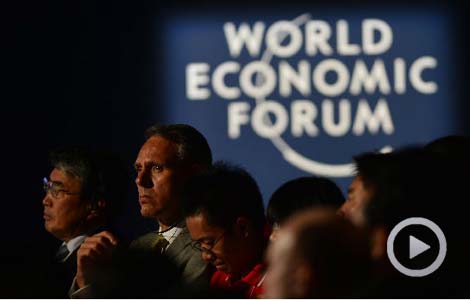Growth model shift seen as beneficial for Europe, China
Updated: 2013-09-14 00:34
By Zhang Chunyan (China Daily)
|
||||||||
The Chinese government's economic transformation and structural reform policies aimed at long-term sustainable growth will be mutually beneficial for Europe and China, analysts have said.
Premier Li Keqiang's support of domestic consumption will offer "sustainable and balanced growth for China", said Michal Krol, a research associate at the Brussels-based European Center for International Political Economy.
"It's more inclusive growth because it has supported the rising incomes of the Chinese population. So, it's more sustainable than cherry-picking investment that will generate profit in the future," Krol added.
"With the liberalization of the market and increasing domestic consumption, more European exports will flow to the Chinese market. With the development of Chinese technology, more sophisticated Chinese goods will flow to Europe as well," Krol said.
His comments came after Li's keynote speech at the World Economic Forum's Annual Meeting of the New Champions 2013, known as Summer Davos, in Dalian, Liaoning province.
Li stressed the importance of economic transformation and structural reform, adding that boosting domestic consumption — especially in the service sector — will be the key part of the economic transformation drive, and balancing regional development and narrowing the gap between urban and rural areas will be a major task.
"Urbanization is related to service sectors and management of urban areas. Infrastructure and all kinds of services like education and healthcare must be in place," Krol said.
In terms of the growth dynamics, inland regions are still lagging behind coastal regions, he added.
"On the other hand, inland regions reveal some prospects for economic growth. Since the development of the manufacturing industry tends to slow down in the coastal cities, the inland regions have the potential of taking over the manufacturing industry," Krol said.
His views were echoed by other experts.
"The internal demand (domestic consumption) and the external demand (foreign sector) should be balanced," said Maria Jesus Herrerias, a senior research fellow of contemporary Chinese studies at the University of Nottingham in the United Kingdom.
"Income distribution among the vast territory of China should be the key to encourage domestic consumption," Herrerias added.
Li said in his speech that China will foster new growth areas in domestic consumption, investing in sectors such as new energy, urban infrastructure and railways in central and western areas, and promoting growth in services including healthcare, culture and education.
Improving the human capital and making education accessible to every citizen is the key to enhance domestic innovation and long-term growth, Herrerias noted.
The Chinese economy has become a hot topic around the world after an economic growth slowdown this year. The government has set the full-year GDP growth target at 7.5 percent.
Wang Xiaobing, a lecturer at the University of Manchester in the UK, expressed his confidence regarding China's economic future, adding that the country's economic growth will be driven by continuous reforms instead of a single reform.
"The reforms will have to be carried out and deepened continuously for the next 20 years at least. It's a long-term process," Wang said.
Wang Mengzhen contributed to this story.
Most Viewed
Editor's Picks

|

|

|

|

|

|
Today's Top News
Growth model shift beneficial for Europe, China
End to QE to 'split' emerging markets
Admiral discusses future of China's aircraft carrier
Beijing backs truce bid in Syria
Fukushima plant situation 'out of control'
Taiwan invited to global gathering as guest
IPhone 4 exploded while charging
Fake tickets found out at Louvre
US Weekly

|

|














